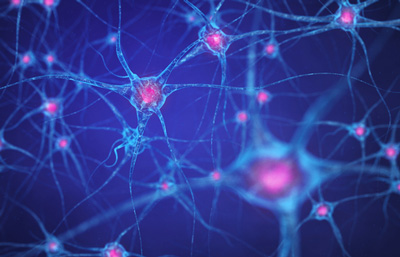Scientists find evidence linking Parkinson’s to autoimmune disease
Posted: 27 June 2016 | Victoria White, Digital Content Producer | No comments yet
Scientists have discovered that two genes associated with Parkinson’s disease, known as PINK1 and Parkin, are key regulators of the immune system…


Scientists from the University of Montreal and the Montreal Neurological Institute and Hospital (MNI) at McGill University have discovered that two genes associated with Parkinson’s disease are key regulators of the immune system, providing direct evidence linking Parkinson’s to autoimmune disease.
Using both cellular and mouse models, the team has shown that proteins produced by the two genes, known as PINK1 and Parkin, are required to prevent cells from being detected and attacked by the immune system.
When PINK1 and Parkin are dysfunctional, as is the case in a subset of Parkinson’s patients, cells display small parts of proteins at their surface, known as antigens, derived from mitochondria. The presence of these antigens at the cell surface causes the activation of immune cells called lymphocyte T cells. These T cells, which can enter the brain, have the ability to destroy any cell displaying the mitochondrial antigens on their surface.
Parkinson’s is caused by the death of dopamine-producing neurons in the brain. An overactive immune system due to dysfunctional PINK1 and Parkin genes could explain why dopaminergic neurons die in Parkinson’s patients. The researchers say this indicates that Parkinson’s may be an autoimmune disease, like multiple sclerosis and Type 1 diabetes.
Validation in mouse models
The new findings of Dr Michel Desjardins from the University of Montreal and Dr Heidi McBride of MNI, linking Parkinson’s disease to autoimmune mechanisms, have been validated in a mouse model of Parkinson’s disease where PINK1 or Parkin are absent.
“Clinicians have shown that the immune system is activated in the brain of Parkinson’s disease patients,” said Dr Diana Matheoud, a postdoctoral fellow from the University of Montreal. “Our study explains how an attack by the immune system may be responsible for the destruction of dopaminergic neurons during the disease. We are currently testing whether autoimmune mechanisms lead to the loss of dopaminergic neurons in mice, and developing systems to extend our study to human neurons.”
“Antigen presentation was not believed to play a direct role in Parkinson’s disease,” added McBride. “While most laboratories are following the trail of the ‘toxic mitochondria’ model, our path led us to observe Parkinson’s disease from a different point of view. Our approach, centred on the immune system, led us down a different road where we were able to observe that autoimmunity is likely to play an important role in the progression of the disease.”
Developing drugs that can limit mitochondrial antigens
Now that a link has been established between two key genes involved in the pathology of Parkinson’s disease and autoimmune mechanisms, the next step is to develop drugs that can limit the presentation of mitochondrial antigens. Remarkably, the mechanism by which mitochondrial antigens are presented involves a process of vesicle formation, originally described by the McBride group, offering molecular targets for the development of new drugs in an effort to block this process.
The researchers’ findings may also lead to better treatments for other diseases. “We think that our study is paradigm shifting because we have identified a new biological pathway linking mitochondria to immune mechanisms in Parkinson’s disease. This opens the possibility to use therapies based on modulation of the immune system, something already done for the treatment of other diseases,” explained Desjardins.
Related conditions
Parkinson's disease
Related organisations
McGill University, University of Montreal



